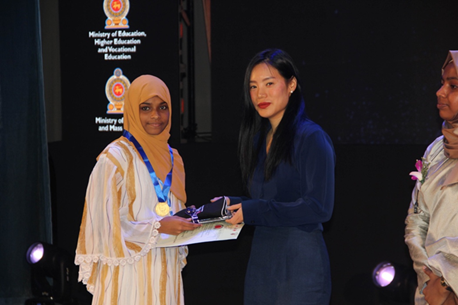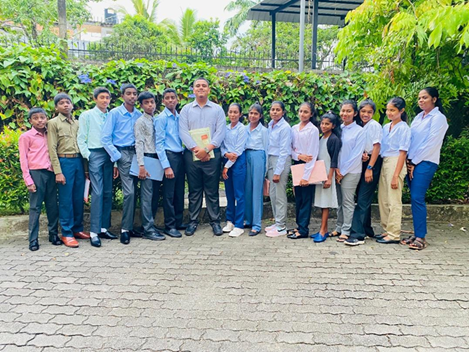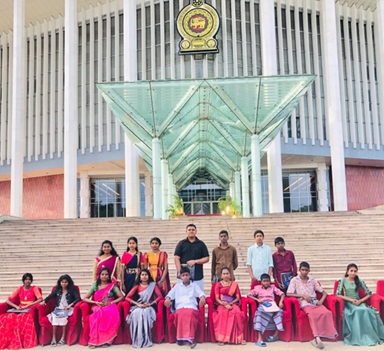Following the groundbreaking success of Sri Lanka’s first Child Rights Council (CRC), launched by Child Action Lanka (CAL) in April 2025, 18 children from CAL centres across the island participated in the 18th session of the Sri Lanka Model United Nations (SLMUN) on August 16–17, 2025.
These young advocates, drawn from marginalized communities, had powerfully articulated their rights and challenges at the CRC, earning their seats through sponsorship by SLMUN’s 16th Executive Committee.
The 18 delegates, representing CAL centres in Colombo, Killinochchi, Mullaitivu, Batticaloa, Nuwara Eliya, Kandy, and the Bogawantalawa community that CAL serves, faced significant challenges in preparing for the SLMUN. Many lacked access to computers & research facilities at home, and frequent power outages made preparation a formidable task. Volunteer coaches from CAL worked tirelessly with the group, guiding them through diplomatic protocol and international relations. Despite the steep learning curve, the children made remarkable progress from where they first began.
Their success was made possible through inspiring partnerships that ensured the delegates could present themselves with confidence. Gateway College Colombo once again opened its doors, building on the support it had extended during the Child Rights Council, by providing accommodation for both practice debates and the SLMUN conference.

Furthermore, Hameedia generously sponsored formal business attire for all 18 children, enabling them to participate with confidence and dignity on the first day of the conference.
At 14 years old, Shakila, a student from CAL Colombo CDC, won the Best Delegate Award in the United Nations Human Rights Council committee, on her very first attempt at SLMUN. Her achievement is a powerful reminder that with the right support and opportunities, every child has the potential to shine.
“Their contributions felt more authentic and reflected lived experiences,” noted SLMUN organizers, who praised the enthusiasm and genuine interest the children demonstrated throughout the conference.
The delegates themselves were equally moved by the experience. One participant reflected, “We feel fortunate to have experienced a world beyond our homes and to have associated with peers from Colombo.”
The initiative demonstrates that meaningful inclusion requires genuine investment in capacity building, mentorship, and creating supportive environments where all participants can thrive. For the broader child rights movement in Sri Lanka, this achievement marks a significant step forward. The young advocates now return to their communities equipped not only with enhanced awareness of their rights and legal processes but also with the confidence and skills to champion change at the grassroots level.

This success also validates Child Action Lanka’s approach to youth empowerment: By creating pathways from local advocacy to national platforms, CAL has shown how marginalized voices can move from the periphery to positions of influence and recognition.



